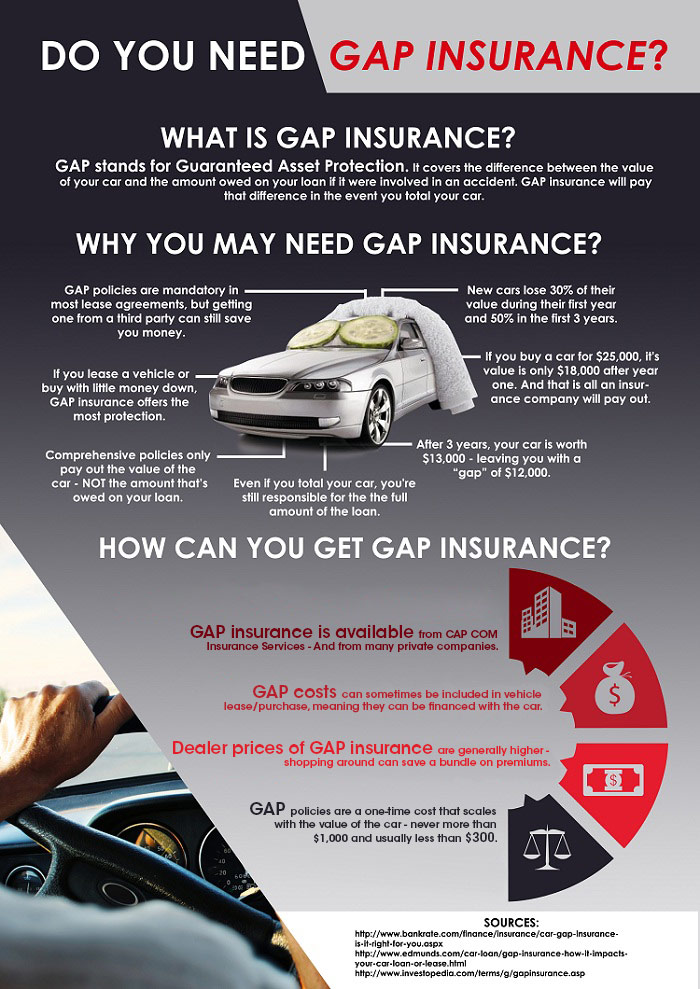Insurance for leased cars is generally higher compared to owned or financed vehicles due to the added insurance requirements by leasing companies. Leasing a car can result in higher insurance premiums due to the increased liability and coverage needed to protect the leased vehicle.

Credit: www.capcomfcu.org
Understanding The Impact Of Leasing On Insurance Coverage
Insurance for leased cars is often higher due to the additional insurance requirements set by leasing companies. This can result in increased insurance costs compared to financing or owning a vehicle. It’s important to consider these factors when deciding whether to lease a car.
Leasing A Car And Insurance Rates:
Leasing a car can have an impact on your insurance rates. Understanding the factors that contribute to higher insurance rates for leased cars is essential. Here are some key points to consider:
- Lease agreement: When you lease a car, the leasing company is the legal owner of the vehicle. As a result, they require you to have certain types and levels of insurance coverage to protect their investment.
- Comprehensive and collision coverage: Leasing companies typically require drivers to have comprehensive and collision coverage, which can be more expensive than just liability coverage.
- Higher value: Leased cars are often newer and more valuable than cars that are owned outright. Because of this, insurance companies may charge higher premiums to cover the increased value of the vehicle.
- Gap insurance: Gap insurance is commonly recommended for leased cars. It covers the difference between the actual cash value of the car and the amount you still owe on the lease if the vehicle is totaled or stolen. This additional coverage can contribute to higher insurance rates.
- Primary driver restrictions: Leased cars may have restrictions on who can drive the vehicle, such as only allowing the primary driver listed on the lease agreement. These restrictions can affect insurance rates.
- Mandatory coverage limits: Leasing companies often require higher liability limits than the state minimums, which can increase insurance premiums.
Understanding these factors can help you navigate insurance coverage for a leased car more effectively. It’s important to review your lease agreement and discuss insurance options with your provider to ensure you have adequate coverage at a competitive rate.
Strategies To Save Money On Insurance For Leased Cars
Save money on insurance for leased cars by considering higher deductibles, comparing quotes from different providers, bundling policies, maintaining a good credit score, and exploring discounts for safety features or driving history. These strategies can help reduce the higher insurance costs associated with leasing a car.
If you’ve recently leased a car, you may be wondering how to get the best insurance rates for your new vehicle. Insurance costs for leased cars can often be higher than for owned cars due to the higher value and potential risks involved.
However, there are strategies you can employ to save money on insurance for leased cars. Here are some tips to help you lower your premiums and keep your insurance costs in check:
Shop Around For The Best Insurance Rates:
- Obtain quotes from multiple insurance companies to compare rates.
- Look for insurers who specialize in leased cars or offer specific leasing programs.
- Consider independent insurance agents who can shop around on your behalf.
Opt For Higher Deductibles To Lower Premiums:
- Choosing higher deductibles can lower your insurance premiums.
- However, it’s important to consider whether you will be able to afford the deductible amount in the event of a claim.
Consider Bundling Insurance Policies:
- Bundling multiple insurance policies, such as auto and home, with the same insurer can often result in discounted rates.
- Check with your insurer to see if they offer multi-policy discounts.
Utilize Discounts And Incentives:
- Many insurers offer various discounts for features such as safe driving records, anti-theft devices, and safety features.
- Take advantage of these discounts to lower your insurance costs.
Pay Your Premium In Full Upfront:
- Some insurers offer discounts for paying your premium in full rather than in installments.
- Consider paying your premium in a lump sum if you are able to do so.
Maintain A Good Driving Record:
- Keeping a clean driving record can help you qualify for lower insurance rates.
- Avoid traffic violations and accidents to demonstrate responsible driving behavior.
Install Safety And Anti-Theft Devices:
- Installing safety features like anti-lock brakes, airbags, and anti-theft devices can lower your insurance premiums.
- Contact your insurer to inquire about specific devices that can help reduce your rates.
By following these strategies, you can save money on insurance for your leased car. Remember to shop around, consider higher deductibles, bundle policies, utilize discounts, pay your premium in full, maintain a good driving record, and install safety and anti-theft devices.
With the right approach, you can find affordable insurance options for your leased vehicle.
Additional Considerations For Leased Car Insurance
When it comes to insurance for leased cars, it’s important to consider that it may be higher compared to financing or owning a vehicle. Leasing companies often have stricter insurance requirements, which can result in higher insurance costs for leased vehicles.
Gap Insurance: What It Is And Why It’S Important For Leased Cars
Gap insurance is a type of auto insurance that covers the difference, or gap, between what you owe on your leased car and its actual market value. It is especially important for leased cars because:
- Leased cars often have higher depreciation rates compared to owned cars, meaning that the value of the car decreases faster.
- If your leased car is totaled or stolen, your insurance company will only reimburse you for the car’s current market value, which may be lower than the remaining amount you owe on your lease.
- Without gap insurance, you would be responsible for paying the difference out of pocket, potentially leaving you with a financial burden.
To ensure you are fully protected, it is crucial to consider purchasing gap insurance for your leased car.
Understanding Lease Agreement Requirements For Insurance Coverage
When leasing a car, it’s important to understand the insurance coverage requirements outlined in your lease agreement. These requirements may include:
- Minimum liability coverage: Your lease agreement may specify the minimum amount of liability coverage you must carry. This coverage helps pay for damages to other people’s property or injuries if you are at fault in an accident.
- Comprehensive and collision coverage: Leasing companies often require lessees to have comprehensive and collision coverage. Comprehensive coverage protects against theft, vandalism, and non-collision-related damage, while collision coverage covers damages to your car in the event of an accident.
- Deductible limits: Your lease agreement may also specify the maximum deductible amount allowed for comprehensive and collision coverage.
Ensuring that you meet these insurance coverage requirements is essential to avoid any potential lease violations and protect yourself in case of accidents or damages.
Considering The Costs Of Comprehensive And Collision Coverage
Comprehensive and collision coverage are often required for leased cars, but they can come with additional costs. When considering these coverages, keep the following in mind:
- Deductible: The amount you choose as your deductible will affect your premium. A higher deductible typically results in lower premium costs but means you’ll have to pay more out of pocket in the event of a claim.
- Vehicle value: The value of your leased car will influence the cost of comprehensive and collision coverage. Higher-value vehicles generally have higher premiums.
- Driving record: Your driving record can impact your premium rates. If you have a clean driving history with no accidents or traffic violations, you may be eligible for lower rates.
Considering these factors will help you make an informed decision about the costs associated with comprehensive and collision coverage for your leased car. It’s recommended to compare quotes from different insurance providers to find the best coverage at the most affordable price.
Frequently Asked Questions On Insurance For Leased Cars Higher
What Is The Biggest Advantage To Leasing A Car?
The biggest advantage to leasing a car is lower monthly payments, less cash required at drive off, lower repair costs, no worries about reselling it, and the option to get a new car every few years hassle-free.
Is It Better To Lease A Car When Prices Are High?
Leasing a car when prices are high is generally not recommended. Despite lower monthly payments, high car prices have made leasing more expensive and less appealing. It is important to do thorough research and consider your personal and financial situation before deciding to lease or buy a car.
Is It A Good Idea To Lease A Car?
Yes, it can be a good idea to lease a car. Leasing offers lower monthly payments, requires less cash upfront, and lowers repair costs. You don’t have to worry about reselling the car and can get a new car every few years hassle-free.
Plus, there are more vehicle options to choose from, and you may have the option to buy the car at the end of the lease.
What Is The Difference Between Owned Vs Financed Vs Leased?
Owned: You own the car and can keep it for as long as you want. Financed: You own the car and can customize it, but you have to pay off the loan. Leased: You don’t own the car, you pay to use it for a fixed period of time.
Conclusion
Leasing a car can come with its own set of challenges, and one of them is higher insurance costs. As we’ve discussed throughout this blog post, the insurance requirements for leased cars are typically greater than those for financed or owned vehicles.
Leasing companies usually have stricter insurance demands, resulting in higher premiums for insurance coverage. This is an important factor to consider when deciding whether to lease a car or not. To save money on insurance for a leased car, it’s essential to shop around and compare quotes from different insurance providers.
Additionally, maintaining a good driving record and opting for higher deductibles can help reduce insurance costs. Remember to carefully review the terms and conditions of your lease agreement to ensure you meet all insurance requirements. While leasing a car may offer its own advantages, it’s important to be aware of the potentially higher insurance costs associated with it.
By being informed and proactive in seeking affordable insurance options, you can make the most informed decision about leasing a car.
